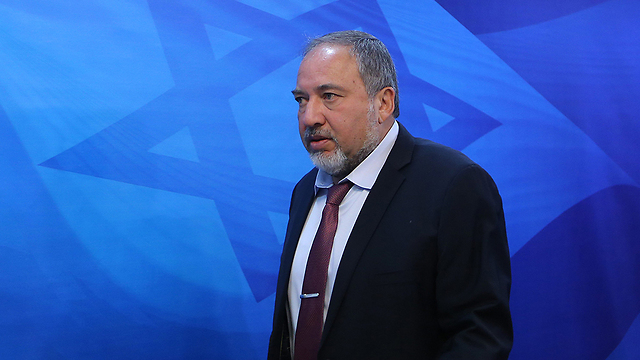
Recently Foreign Minister Avigdor Lieberman announced that he would be proposing a peace plan involving a compromise with the Palestinians, saying a "unified people is more important than unified land". The relatively moderate plan was announced ahead of early elections set for March 2015, and could be an attempt to present himself as a pragmatic rightist, electable by Israeli centrists.
Asked whether they agreed with or opposed this position of Lieberman’s, 59% of the Jewish interviewees said they support the proposal, while 34% opposed it.
A similar pattern, though less pronounced, emerged in regard to Prime Minister Benjamin Netanyahu’s statement about a year ago that a peace agreement is necessary to prevent a situation where Israel would in the foreseeable future become a bi-national state without a Jewish majority: 52% agreed with Netanyahu’s assertion, while 38% opposed it.
In other words, a clear majority—though not very large—of the Jewish public accepts the need for a territorial compromise in principle.
A poll last year said that 63% of the Jewish population was against Israel agreeing to the 1967 lines, even if there were land swaps which would enable some Jewish settlements in the West Bank and East Jerusalem to remain part of Israel.
A recent poll of the US public showed that nearly one in three supported a bi-national state, a notable increase over the previous year.
Another issue investigated by the poll was the employment of Israeli Arabs.
After the recent spate of terror attacks, the mayor of Ashkelon called to stop employing Israeli Arabs in construction work at educational institutions in the city, claiming that this would enhance the residents’ sense of security. The poll showed a large minority of 43% of Jews supporting such a move, while a small majority of 52% opposed it.
The poll also found that 90% of the Jewish public objected to attacks on joint Jewish-Arab educational facilities, such as the arson attack on the bilingual school in Jerusalem.
Regarding the "nationality bill" promoted by Netanyahu, 52% of Jews said it was consistent with Israel's Declaration of Independence, while 82% of Arabs thought they were contradictory. And while a large majority of 73% among Jews saw no contradiction between Israel being a Jewish and democratic state, an even larger majority of Arabs – 83% -- said the two concepts were incompatible.
Another set of questions focused on the current state of peace negotiations.
When the Jewish public was asked to whom it is more important to reach a permanent peace settlement, 39% responded that it is equally important to both sides, 41% saw it as more important to Israel, while only 16% believed that a permanent peace is more important to the Palestinians. By comparison, about two-thirds of the Arab interviewees responded that peace is equally important to both sides.
On the the lack of progress in negotiations, 41% of Jews saw both sides as equally responsible, 48% held the view that the responsibility for this situation falls mainly on the Palestinian side, while only 9% assigned it to the Israeli side.
Of the Arab responses, 60.5% pinned the responsibility for the standstill on both sides equally, 28.5% placed the responsibility on Israel alone, while only 1% assigned responsibility mainly to the Palestinian side.
The survey was conducted by telephone on December 1-3, 2014, by the Midgam Research Institute. The survey included 602 respondents, who constitute a representative national sample of the adult population. The maximum margin of error is 4.1%.


















